The redcurrant harvest at Dutch company Berrybrothers has come to an end. "We took a shorter time to harvest this year than we were used to. Fortunately, the quality of the fruit is good. We prefer the current summer to the extreme heat we've had in the summer months in recent years anyway, the berries hate that," Nijs van Zuilen says.
"However, the wet period we had from November to June did affect the harvest. As a result, winter temperatures have been high and actually redcurrants need a traditional winter chill. You can therefore see across the board that less fruit has been harvested," Nijs continued. "This has resulted in prices being at a high level. That does sometimes create dilemmas. As a grower, you naturally like to sell your product at the highest possible price, but at the same time, our customers expect us to sell product at least until the end of March. As a result, we sometimes have to sell some with the brakes on."
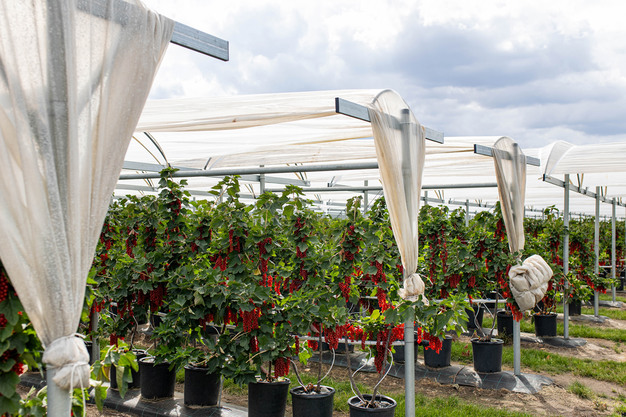
"Redcurrants still remain a niche product, especially within the overall soft fruit range. Out of demand from our customers, we have increasingly focused on other fruit varieties in recent years so that we can supply them with the entire soft fruit package year-round. While in the past we only carried the red berry, now, thanks to imports from South America and elsewhere, we also offer the full range in winter, red, blue and white berries, raspberries and blackberries." A foray into strawberry cultivation is not yet on the cards for BerryBrothers. "This is often requested, but strawberries require a completely different type of cultivation and size. That's quite a step to add that to it."
Growing in pots
At the location in Buren in Betuwe, brothers Teun and Gijs are busy taking over father Albert's nursery. "We see that many redcurrant growers are at a crossroads. There are companies that innovate heavily, but there is also another group, which often has no successor, and who wonder whether such an investment still has a return," Teun says. "As a new generation, we are looking at forward-looking cultivation. We have started to work hard on innovations in cultivation, including growing in pots instead of soil. We expect this to be the future."
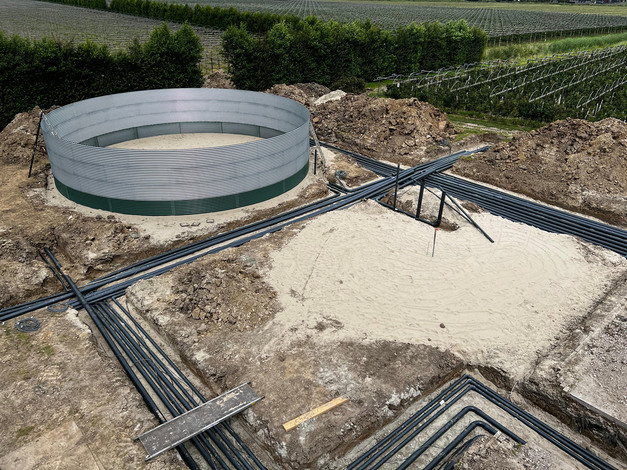
"We've installed a new fertigation system, using modern techniques. This should further optimise our cultivation in the future and the tests are promising. For instance, the tests show that the productions per hectare are up and the plant is more vital. And with a more vital plant means a stronger berry, which means the storability and shelf life of the berries is also better and, as a result, we also hope to reduce plant protection products," Teun says.
At the variety level, in redcurrant cultivation it has been Rovada and Junifer what has been ringing the bell for years. "But due to climate change and especially warmer winters, we are investigating which varieties are good to grow in this new climate. That involves a lot of time and energy and it is a whole different expertise, which is why we have also engaged a supporting party for this. We have hundreds of varieties in our trial fields. Of course, many varieties drop out of these, but we also hope to find new varieties that thrive in changing climate conditions. Developing and testing a variety takes years. We are also looking for new varieties in other fruits. The good thing is that breeders know how to find us for this, because they see us as an independent party in the market."
Preferred local product
The Dutch blueberry season also went well, according to Nijs. "Productions were good and we had nice sales, mainly on the local market. We can only be satisfied with that. We also believe that Dutch blueberries should actually find their way into the Netherlands and Belgium. Previously, blueberries were exported more often, but you see that actually any European country can grow blueberries. Fortunately, we see our retail customers increasingly opting for locally grown product in those few weeks when the berries are growing in the Netherlands. At the same time, we do not see the acreage of blueberries in the Netherlands growing. It remains a risky outdoor crop, where the plants are not protected from sun, winter frost and hail."
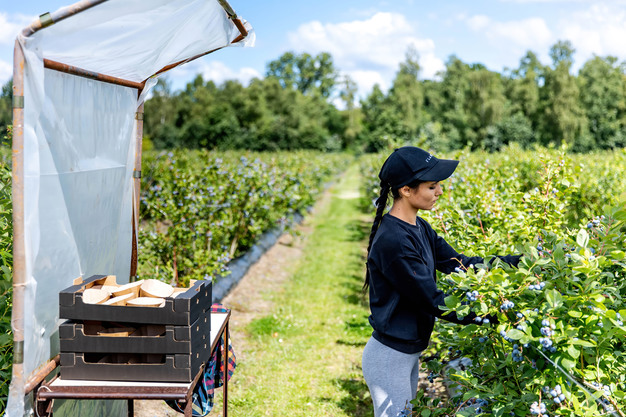
"In raspberry cultivation, on the other hand, we are again seeing a lot of development of new varieties. In this fruit, too, we notice that Dutch consumers' demand for locally grown fruit is increasing. We also see this in blackberry cultivation, although that sale has also been more difficult at times in recent years, because if there is something too much of it, that market can easily be oversupplied. We ourselves have bet fully on Sweet Royalla blackberries. For this year, I think the blackberry and raspberry market is well balanced and that has actually been the case from the start of the season. Growers are getting a good price and there is no oversupply in the market. I don't expect any change in that for the close of the season either."
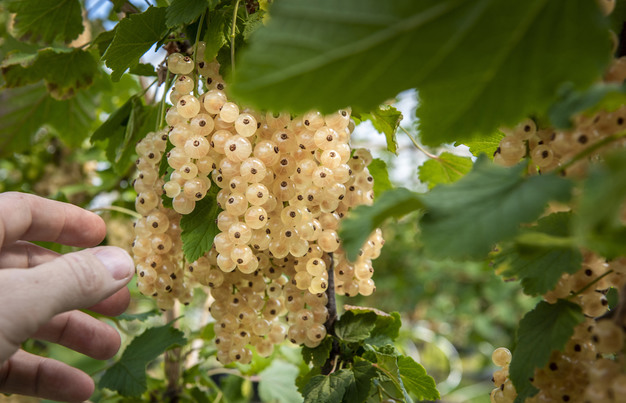
"Finally, we have white currants in the range. That's really not a runner, but it's a nice item for the catering and foodservice sector in particular that complements the rest of our berry range nicely," Nijs concludes. At the main location in Roggel, employees moved into the new Agro flat for the first time this season. Future-oriented entrepreneurship is not just about cultivation, good accommodation is also an important part of it," Nijs concludes.
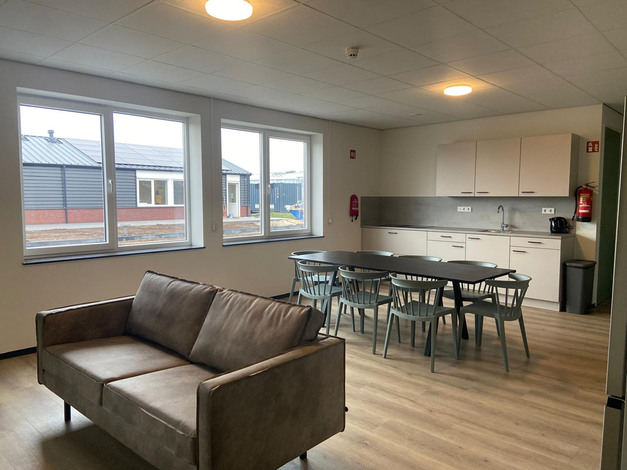
BerryBrothers recently launched a new website, see link below.
 For more information:
For more information:
Nijs / Teun van Zuilen
BerryBrothers
Tel: +31 (0)6 46 70 84 53
[email protected] / [email protected]
www.berrybrothers.nl
